Best Cancer-Fighting Herbs

Cancer is a terrible and unfortunate disease that claims the lives of thousands every year. While we understand a lot about this disease, we still do not know enough to rid ourselves of this horrible blight effectively.
There are many different causes of cancer, and thankfully, we have numerous ways to help treat it. There is surgery, therapy, medicines, and more. Today, we will look specifically at different herbs and herbal remedies that can help combat cancer through their natural properties.
This is in no way meant to say that these herbs will suddenly cure someone of their cancer. Still, by including these options in your lifestyle, you might be able to help ease your suffering and stave off the worst effects. This is due to different aspects that help negate and ward off some of the methods by which cancer spreads and develops.
Best Cancer-Fighting Herbs
Below we will take a look at some of your best options to fight cancer.
Rosemary
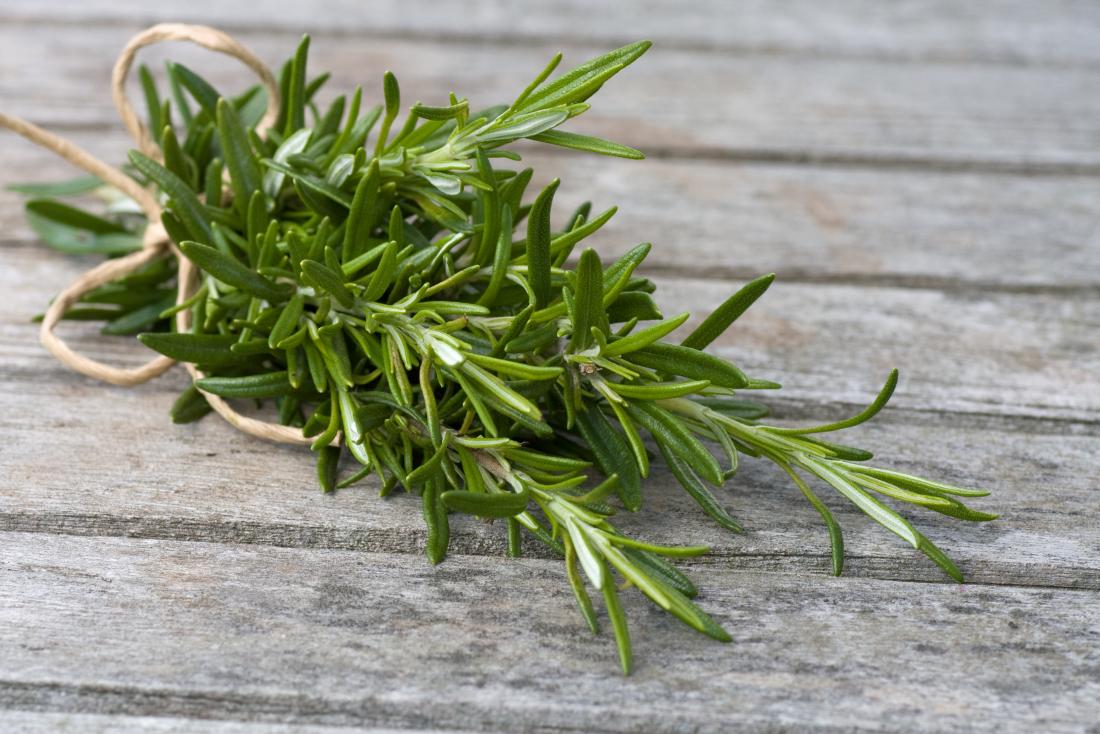
Rosemary is a prevalent herb used for centuries as both a seasoning when cooking and in herbal remedies for various bodily ailments, such as inflammation. Speaking of its anti-inflammatory properties, rosemary contains two specific ingredients that may help fight cancer – caffeic acid and rosmarinic acid. These ingredients are rich in antioxidants and are natural anti-inflammatories.
Rosemary also contains carnosol, the key ingredient that we are looking for. Carnosol makes rosemary an antitumorigenic herb – meaning it can help prohibit the formation and growth of tumors in the body. It has also been observed to detoxify some of the substances known to cause breast cancer.
Finally, the last ingredient we will mention is terpenes, which reduces oxidative stress and is chemoprotective, thus protecting healthy tissue from the effects of chemotherapy.
Parsley

Another everyday cooking and seasoning ingredient, parsley is a herb that is also known to be rich in antioxidants. More importantly, parsley contains the volatile oil myristicin, which has been observed in animal studies to help prevent and stave off tumor growth and development, specifically in the lungs. This myristicin oil also has chemoprotective properties that are similar to rosemary, and it is easier to incorporate it into your food.
This herb is a powerful cancer-fighter that helps neutralize certain carcinogens like those you would breathe from second-hand smoke. Finally, it contains an ingredient called apigenin, which is a natural oil that can be linked to anti-angiogenesis. Anti-angiogenesis reduces blood vessel growth that supplies cancerous tumors with the nutrients they need to grow.
Oregano
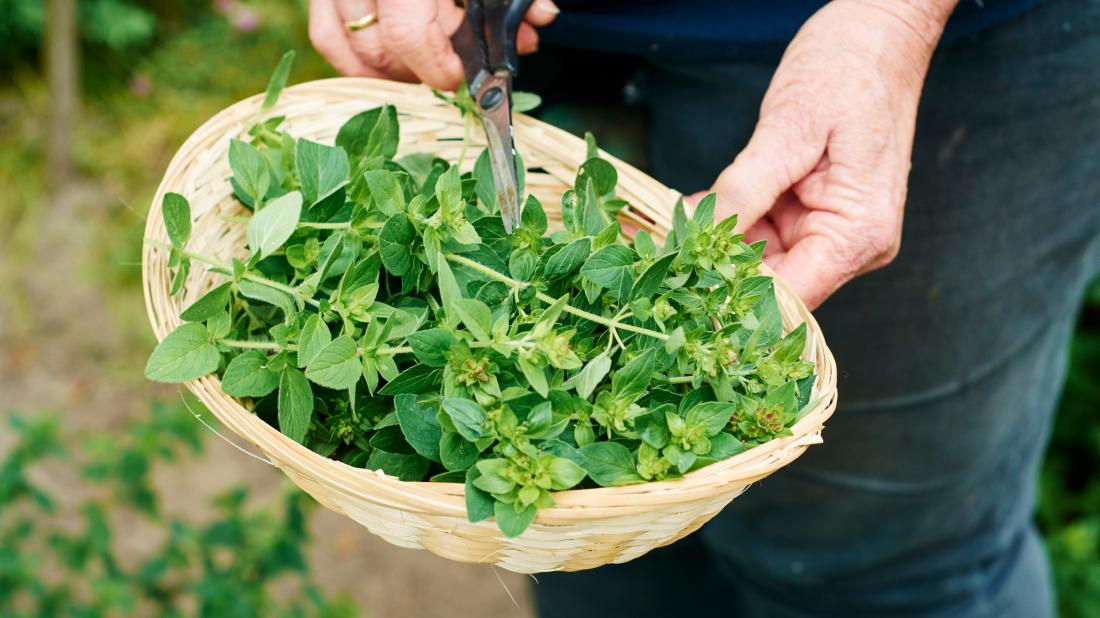
Oregano is a herb that we are all familiar with, especially when it comes to Italian cooking. Popular in tomato-based dishes and sauces, such as pizza and pasta, this herb is actually quite rich in antioxidants and antimicrobial compounds, containing very high levels of both. It also includes the phytochemical known as quercetin, which has been observed to slow down cancer and cancerous tumors while promoting apoptosis.
Much like parsley contains ingredients that are beneficial for warding off lung cancer, oregano and its antimicrobial properties are particularly potent when it comes to protecting against colon and prostate cancer, as well as helping to slow and restrict the growth of malignant cancerous cells throughout the whole body.
Basil
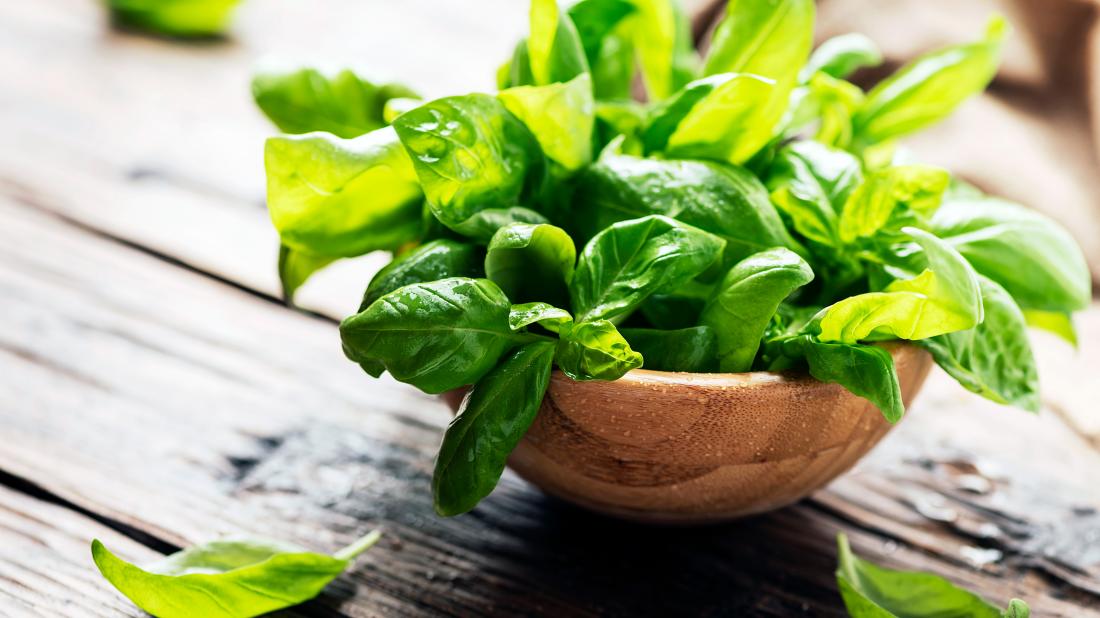
Basil is another herb that is featured strongly in Italian dishes, and it is originally from Iran, India, and more tropical regions in Southeast Asia. Its popularization throughout those parts of the world helped spark a connection between basil and various health benefits. It was found to be rich in individual ingredients that are antimutagenic, antioxidant, antiviral, antibacterial, and antitumorigenic, the last of which is of particular importance to the concept we are discussing today.
Basil is best used as an antimicrobial, as that is where its greatest strength lies. However, it was found that when basil was enriched with balsamic vinegar and then included in various soups and salads that included a plethora of other beneficial herbs, it has excellent effects on decreasing oxidative stress. It also has slight anti-cancer properties that help reduce the growth and spread of cancerous tumors and help reduce carcinogenesis.
Thyme

Thyme (and by extension, all the plants and herbs under the plant genus Thymus) has been observed to contain various active agents that have different beneficial properties. These include thymol, apigenin, luteolin, carvacrol, tannins, and various other natural oils. Many of these ingredients, namely the thymol and carvacrol, have been found to enhance xenobiotic-metabolizing enzymes.
In layman’s terms, this essentially means that thyme contains various oils and components that help combat the early stages of cancer development. This is particularly true for cancerous enzymes and cells that could develop in the liver and colon, where thyme’s anti-cancer properties are felt the strongest.
Lavender
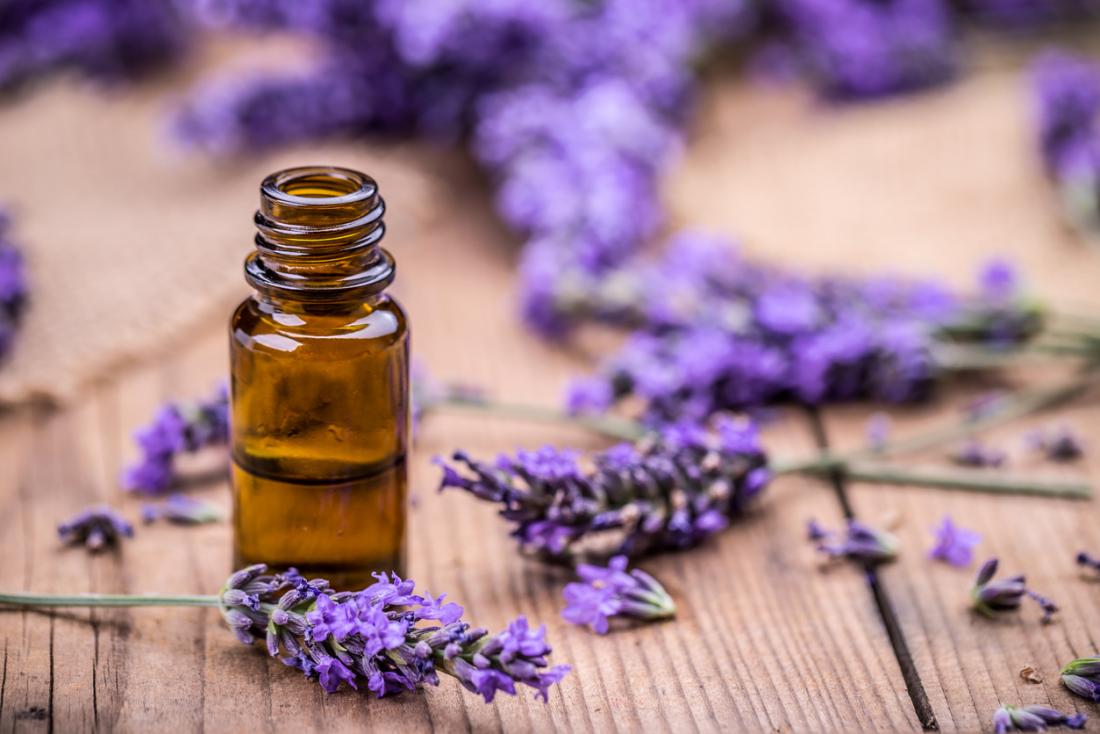
This fragrant and popular herb native to North Africa has seen extensive use in a variety of ways. It has been used and is purportedly beneficial in the treatment of depression and anxiety, as well as to improve relaxation, sleep, and breathing. However, there have been additional studies that have identified properties of lavender that might make it a potent cancer-fighting herb.
This is mostly attributed to the discovery of a compound known as POH, or Perillyl Alcohol. This compound has shown some benefits as a nasal spray for those in palliative care who have recurrent gliomas. However, lavender has not undergone proper testing on humans, so there is no guarantee that this is a proven avenue as of yet. Still, the possibilities are quite strong and in favor of lavender being a possible treatment for cancer and cancer symptom control.
Green Tea
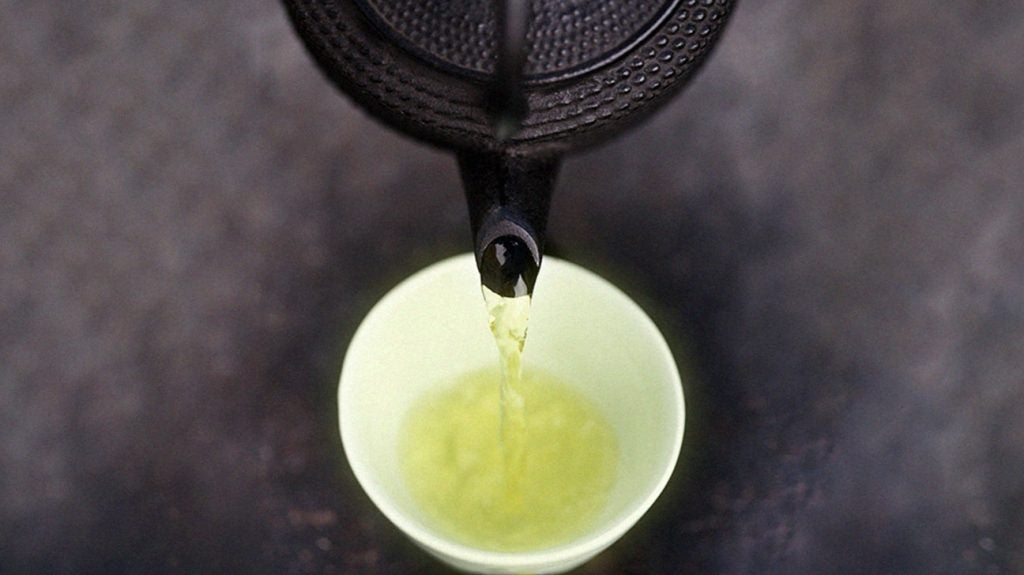
There is an interesting statistical parallel between the diet of the East Asian population and their resilience against various diseases and ailments that pervade the Western world. Much of their diet is traditionally very healthy, and one of the most common and beloved beverages is green tea, which has some substantial health benefits. Green tea contains no calories, carbs, fats, or sugars, and it has a plethora of plant-based nutrients.
Specifically, green tea possesses plenty of flavonoids, which are great for fighting off cancer, particularly cancer in the skin, lungs, colon, esophagus, bladder, and breasts. Besides that, green tea is packed with polyphenols and catechins, which help prevent heart disease by lowering bad cholesterol and protecting your heart and arteries.
Green tea has often been a healthier alternative to even water, as you get all the hydration and all the nutrients that help reduce the risk of death from all-natural causes. For optimal results, drink five or more cups a day.
Caraway
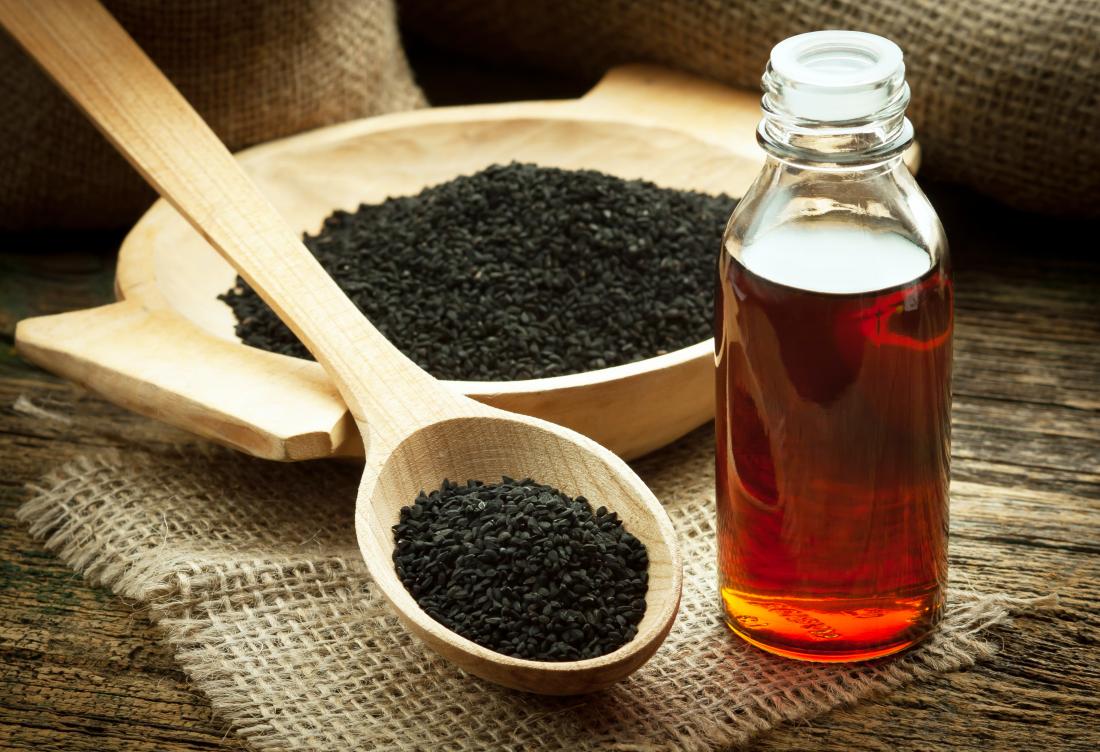
Also known as Meridian Fennel and Persian Cumin, this herb is native to western Asia, Europe, and North Africa. It is believed to have powerful antioxidants and a potent reaction when interacting with carcinogens. While little to no testing has been done on humans, it was found that caraway seed extract has helped act as an anti-cancer ingredient for mice, with particular effectiveness in regards to colon and skin cancers.
Further testing revealed a strong possibility that caraway and caraway seed extract can help treat these cancers and help reduce the effects of carcinogens through detoxification to help reduce the growth and development of cancers. In other words, there is good evidence that caraway may be an avenue to help develop cancer preventatives.
Cardamom
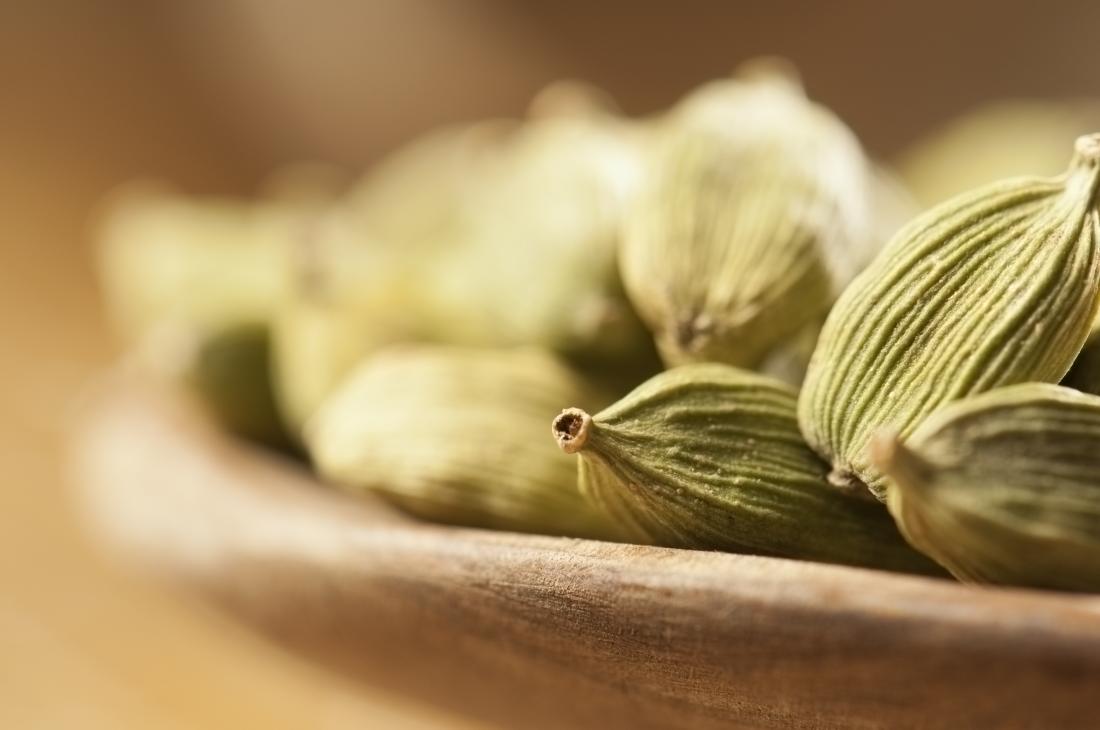
Popular throughout Indian and European cooking, cardamom is another herb that is cited as a potential cancer-fighter. When made into a spice, cardamom has been known to have powerful antioxidant properties, as well as the ability to extract radicals in the body. It is the ability to scavenge and remove radicals from the body that could possibly make this a valid cancer-fighting herb. Even in small doses, it proved as effective as some clinical medicines.
Because of this effectiveness, a test was run, and it was found that cardamom was able to inhibit chemical carcinogenesis. This suggests that cardamom, at least in an oil form, can affect the enzymes of xenobiotic metabolism and therefore be a possible cancer deterrent – similar to caraway.
Cloves
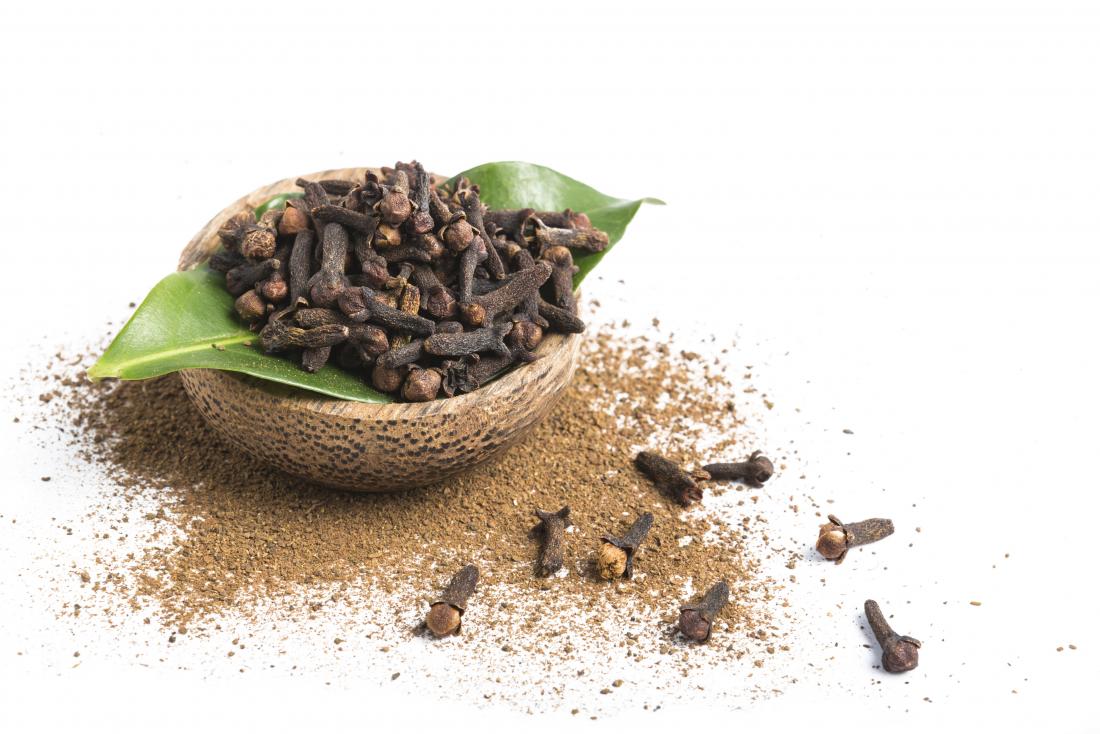
Our last herb is native to Indonesia and is used in Indonesian food, but it is also prevalent throughout the world. Cloves are useful throughout the herbal medicine world thanks to several bioactive components, such as tannins and terpenoids, which we have listed previously as components that can help with cancer treatment and prevention.
Again, no formal studies have been conducted on humans yet. However, some research suggests that some of the components in cloves can be used for protection against cancer by halting the growth of tumors and promoting the death of cancerous cells. Eugenol, in particular, has potent anti-cancer properties.
Conclusion
As you can see, many different herbs are both tried and tested, and some that have not been tested still provide strong evidence to support the fact that they might be cancer-fighting. As we continue to explore other avenues, we continue to find various aspects of the world around us, and we can even use the food we eat to help combat this disease. Whether it be a brew of green tea or a sprinkling of rosemary and oregano in our food, there are many ways we can defend ourselves.
Other Suggestions
- 10 Best Anti-Inflammatory Herbs
- Herbs for Candidiasis
- Cancer
- 75 Herbs
- 7 Benefits of Tea Tree Oil for Hair
